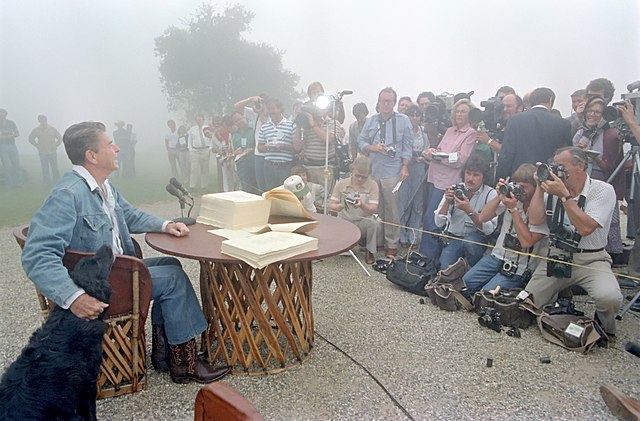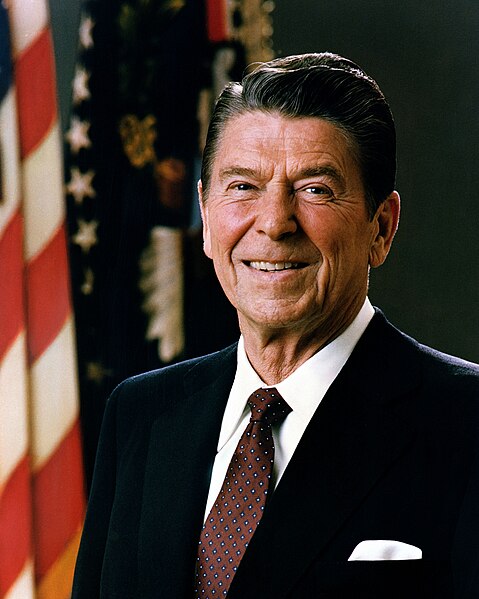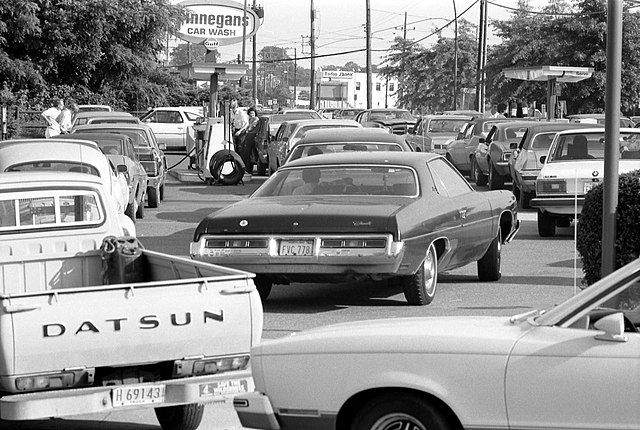The early 1980s recession was a severe economic recession that affected much of the world between approximately the start of 1980 and 1982. It is widely considered to have been the most severe recession since World War II until the 2007–2008 financial crisis.
Margaret Thatcher
US GDP growth in the early 1980s. The short recession at the start of the decade and the following brief period of growth as well as the deeper recession in 1981 and 1982 have led to the period being characterized as a W-shaped recession. Percent Change From Preceding Period in Real Gross Domestic Product (annualized; seasonally adjusted); Average GDP growth 1947–2009 Source: Bureau of Economic Analysis
President Ronald Reagan signs the Economic Recovery Tax Act of 1981 (ERTA) bill at Rancho del Cielo in 1981
Ronald Reagan
A drop in oil production in the wake of the Iranian Revolution led to an energy crisis in 1979. Although the global oil supply only decreased by approximately four percent, the oil markets' reaction raised the price of crude oil drastically over the next 12 months, more than doubling it to $39.50 per barrel ($248/m3). The sudden increase in price was connected with fuel shortages and long lines at gas stations similar to the 1973 oil crisis.
Line at a gas station in Maryland, United States, June 15, 1979.





